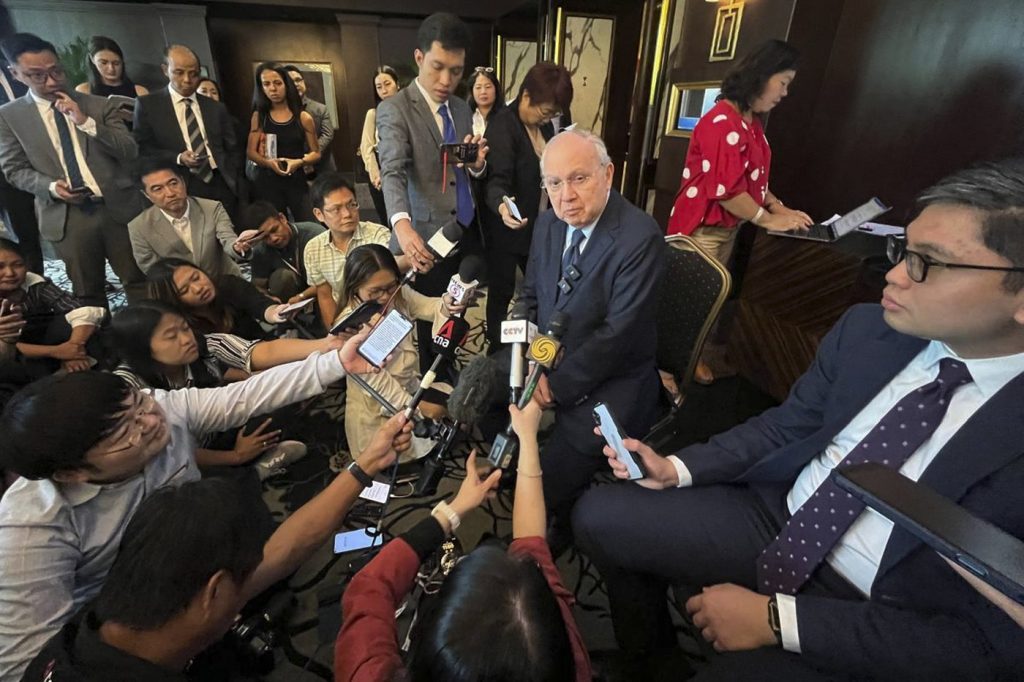The Philippines' top diplomat to the United States, Ambassador Jose Romualdez, expressed optimism on Monday regarding the continuity of military operations in the contested South China Sea under President Donald Trump's administration. With growing concerns over China's assertive actions in the region, Romualdez noted that he anticipates the U.S. will maintain its military presence and support for the modernization of the Philippine military, which plays a key role in deterring China's influence in the disputed waters.
In a conference with foreign correspondents in Manila, Romualdez stated, "All of that will remain," emphasizing his confidence in the ongoing U.S. commitment to the Philippines. He mentioned that arrangements for a meeting between President Trump and Philippine President Ferdinand Marcos Jr. are underway, potentially scheduled for the spring, depending on their respective calendars.
Romualdez's comments come at a time when Trump's "America First" policy has raised doubts about the extent of U.S. commitment to the Indo-Pacific region. His administration's efforts to reduce foreign assistance and security aid have heightened concerns among allies, including the Philippines. However, recent talks between Philippine and American defense officials affirmed strong bilateral ties and a mutual commitment to address regional security challenges.
U.S. Secretary of State Marco Rubio recently met with Philippine Foreign Secretary Enrique Manalo during the Munich Security Conference, where he reiterated the U.S.'s support for the Philippines. This included discussions on ongoing bilateral coordination to counter China's destabilizing actions in the South China Sea and enhance economic collaboration across various sectors, such as infrastructure and energy.
Confrontations in the South China Sea have escalated in recent years, as multiple nations, including Vietnam, Malaysia, Brunei, and Taiwan, hold competing territorial claims. Romualdez highlighted that assisting the Philippines in safeguarding its territorial waters and airspace will ultimately benefit the U.S. and its allies, as they solidify their defense partnerships with Manila. His statements underscore the strategic importance of maintaining a free and open Indo-Pacific region.
Under the previous administration of Joe Biden, there were significant efforts to fortify security alliances in the Indo-Pacific to effectively counter China's assertiveness, particularly regarding Taiwan. This aligns with Marcos's objectives to bolster the Philippines' defense capabilities and protect its territorial interests in the South China Sea.
As regional dynamics continue to shift amid increasing tensions, the Philippines remains a critical player in the broader strategy to ensure stability and security in the Indo-Pacific. The commitment to a strengthened U.S.-Philippines alliance reflects a shared interest in upholding international norms and security in maritime routes that are vital for global trade.










